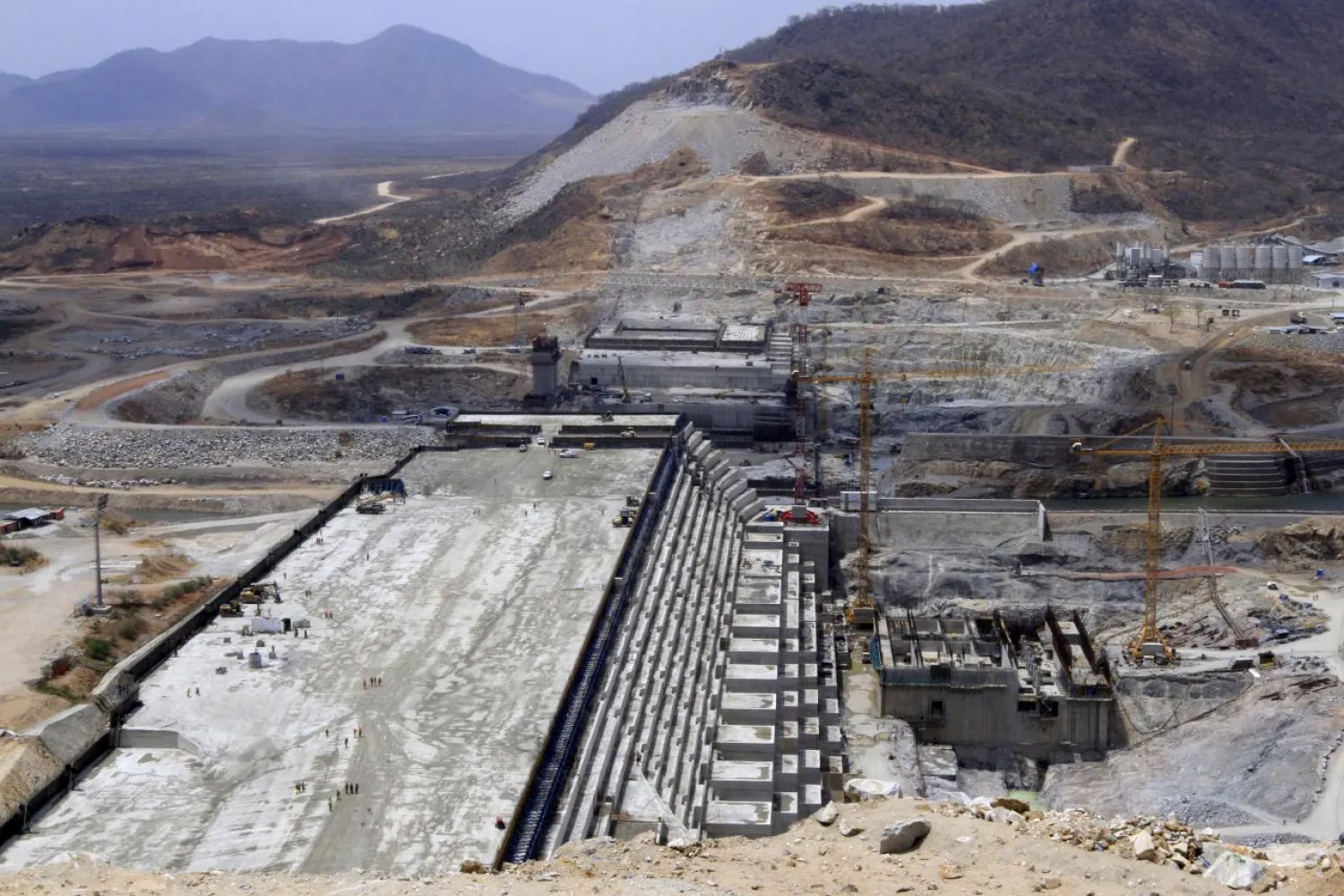The irrigation ministers of Egypt, Ethiopia, and Sudan will engage in a new round of talks on the Renaissance Dam in Addis Ababa on Saturday aiming to reach a consensus before a meeting set to be held in mid-May.
A high-level technical delegation led by Egyptian Minister of Water Resources and Irrigation Mohamed Abdel Ati headed to Ethiopia on Friday for the negotiations.
Informed sources at the Ministry of Water Resources and Irrigation indicated that the meeting comes in the framework of Egypt's quest to resolve controversial issues, and in conformity with the agreement reached between the leaders of the three countries on the importance of committing to the 2015 Declaration of Principles.
The tripartite meeting of irrigation ministers comes after Sudan and Ethiopia announced full agreement on the dam, stressing that Egypt's share of the Nile water will not be affected by its construction.
"We are interested in complying with the Declaration of Principles on the reservoir, signed in 2015, and with the importance of the tripartite committee," indicated Sudanese President Omar al-Bashir after meeting with Ethiopian Prime Minister Abiy Ahmed.
After 16 hours of closed sessions, representatives of the upstream state, Ethiopia, and the downstream states, Egypt and Sudan, failed to reach an agreement during the Khartoum meeting on April 4 and 5, which brought together foreign ministers, irrigation ministers and intelligence chiefs of the three countries.
After the meeting, Ethiopia accused Egypt of paralyzing the tripartite Khartoum meeting. However, the Egyptian Foreign Ministry responded by saying that it wanted "serious agreement" and that it had offered several solutions to break the current stalemate. Egypt then invited the ministers of foreign affairs, irrigation and intelligence officials in Sudan and Ethiopia to a meeting in Cairo. However, the talks never took place.
Differences on the dam were announced after the seventeenth meeting of the tripartite technical committee held in Cairo at the presence of water ministers from the three countries in November 2017.
In March 2015, the three countries signed an agreement which includes ten basic principles, most of them dealing with the protection of the rights and interests of water.
But the talks have been hampered by disagreements.
Egypt's Foreign Minister, Sameh Shukri, repeatedly indicated that Egypt is flexible, yet has nothing to fear and nothing to hide. Cairo fears a possible negative impact on the flow of its annual share of the Nile River (55.5 billion cubic meters), the country's main water source.









